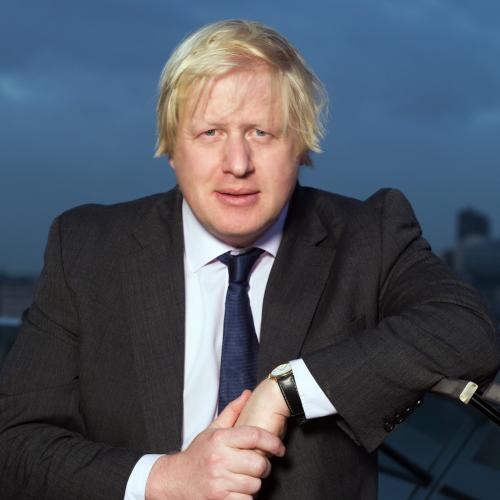Andrew Mowie – 2017 Maiden Speech to the House of Commons
Below is the text of the maiden speech made in the House of Commons by Andrew Mowie, the Conservative MP for West Aberdeenshire and Kincardine, on 26 June 2017.
Thank you, Mr Deputy Speaker, for calling me to speak. It is a pleasure to follow the hon. Member for Ilford South (Mike Gapes).
It is an incredibly humbling experience to have been elected to this place. I hope that, however long or short my time here may be, I will be able to serve West Aberdeenshire and Kincardine with the same dedication and purpose as my predecessor, Stuart Donaldson, did for two years.
I am fully aware that I walk in august footsteps: Sir Robert Smith held the seat for 18 years; George Kynoch sat here and represented the equivalent seat of Kincardine and Deeside for five years; and, of course, the still much respected and fondly remembered Sir Alick Buchanan-Smith held Kincardine and Deeside and, before that, Angus North and Mearns from 1964 until his death in 1991. That was 27 years, and I am only on day 18.
Members will, I am sure, get fed up of my 12—yes, 12—Scottish Conservative colleagues insisting that their patch of God’s own country is the most beautiful in the entire UK. Although I do, of course, sympathise with them, it is quite clear that the most beautiful, unique, attractive and downright brilliant constituency in the entire country is West Aberdeenshire and Kincardine—from the Cairngorms National Park around Braemar, down through the Dee Valley and Royal Deeside, to Ballater, Aboyne and Banchory, skirting the edge of the granite city itself, taking in Blackburn, Westhill, the subsea capital of Europe, and down to the North sea cost at Portlethen and north Kincardine. There is also the picturesque, pastoral Donside, Corgarff, Strathdon, Alford and Kemnay. Stonehaven and the villages in Howe of the Mearns were made famous, of course, by Lewis Grassic Gibbon in what was the favourite novel of my grandfather, an English teacher, “Sunset Song”.
In the old rhyme,
“the twa peaks you can see frae the sea, Clachnaben and Benahie”,
are both in West Aberdeenshire and Kincardine, although I should admit to having to share the latter with my hon. Friend the Member for Gordon (Colin Clark).
What other seat has such history? I could—but I will not, because time will not permit it—tell the gripping tale of how the Honours of Scotland were smuggled out of Dunnottar castle in a creel basket by a minister’s wife, to save them from the clutches of the marauding army of Oliver Cromwell; or of the romantic but ultimately doomed 1715 Jacobite rebellion, which began at Braemar with the raising of the standard of James VIII and III; or of Victoria, Albert, John Brown and how Deeside became Royal Deeside; or of the Monymusk reliquary, thought to be 1,300 years old and which held the bones of St Columba and was carried in front of the victorious Scottish army at Bannockburn. I could tell those tales, but I will not.
It would, of course, be entirely remiss of me to speak today without mentioning how I, in West Aberdeenshire and Kincardine, now have the immense honour of representing Balmoral castle. In fact, as Members from Scotland will be aware, the residence in the north-east of Scotland is now represented by a Conservative not only in this place, but in the Scottish Parliament by my friend and colleague Alexander Burnett. With Ruth Davidson herself representing Holyrood palace in Edinburgh, Her Majesty will, I am sure, be delighted to know that she now has three elected Conservative representatives on whom she can call. It is an honour to represent Balmoral, even when, if canvassing, it is an extremely long drive to walk up only to find that the resident is not on the electoral roll.
I have 33 seconds left, so I will canter through the rest of my speech. Today we continue to debate the Queen’s Speech, specifically how it relates to Brexit and foreign affairs. The speech last week stated that a Bill would be introduced to repeal the European Communities Act 1972 and provide certainty for individuals and businesses.
Last Thursday I attended the royal highland show in Ingliston. I met many farmers, including from West Aberdeenshire and Kincardine. In between lamenting how appallingly poor the Scottish National party has been at managing the common agricultural policy system north of the border, they wanted to make one thing abundantly clear. What farmers and all in the agriculture sector require—what they need now more than anything else—is certainty and stability in our country and our economy, and a clear way ahead so that they can plan and grow their businesses, not just for the next five years, but for the next 10, 15 and 20 years.
What the farming sector and, indeed, this country do not need is further uncertainty in the shape of another referendum on Europe or another general election, and they certainly do not need another referendum on Scottish independence. Why not all come together, in the national interest of the United Kingdom, and support the Government this week? That is what my constituents need me to do, and that is what I will do.

